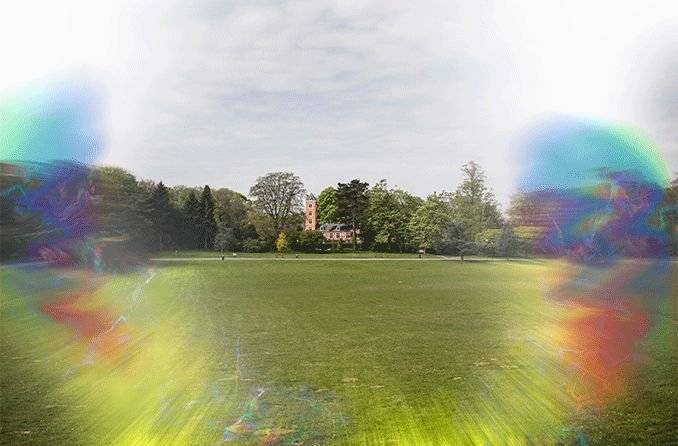Investigating the case of Medication Overuse In Migraine Treatment
Many chronic headache relief medications have been prescribed to migraine patients; due to this long-term therapy, many individuals have acquired additional issues that lead to medication addiction.
In addition to medication overuse in migraine, chronic headache has been prone to painkiller medication. In this case, patients are likely to be addicted to analgesic drugs which created the adverse effect of the headache treatment.
In addition to medication overuse in migraine, chronic headache has been linked to pain relievers; in this situation, patients are more likely to get addicted to analgesic medicines. Thus, the headache treatment with western medication has created adverse effects.
The danger of medication overuse in migraine makes up for the worsening of headache symptoms. Meanwhile, headaches symptoms are likely to improve after discontinuing the drug usage frequency, although the main problem that causes the headaches to remain unchanged.

Migraine patients experience pain that links to the visual, motor, speech/language, retinal, or brainstem related. Patients are more likely to be at the older ages who were diagnosed with giant cell arteritis, trigeminal post-herpetic neuropathy, sleep apnea, and polypharmacy.
Patients with migraine headaches frequently have a lengthy history of ineffective preventative therapies and a high prevalence of comorbidities or the presence of two or more illnesses or medical problems in the same patient.
Even though the causes of headaches are linked to the complexity of neuron transmission within our brain; there is a link between pharmaceutical usage and migraine.
Patients suffering from headaches are often prescribed painkiller medications such as NSAIDs, aspirin, and paracetamol. These medications inhibit the cyclooxygenase enzymes (COX), which convert free essential fatty acids to prostanoids to reduce the levels of inflammatory tissue. As a consequence, the processes through which dopamine participates in chronic migraine have been identified.
Migraine has historically been treated with a variety of western medicine and traditional Chinese medicine method.
Because our nervous systems are so complex, scientists have devised several methods to study and interpret the jumble of electrical activity in our heads that cause migraines.
Because the migraine phase might linger for an extended period, using only medical medicines to cure it can occasionally result in additional adverse effects. It is safer to stick with an alternative treatment plan that is not involved in many medications, such as acupuncture for migraine headaches.
Teaching the pain to get used to drug consumption patterns might have the unintended consequence of the pain becoming accustomed to pain and failing to respond adequately to it. Especially, our brain changes in repeating behaviors, and the practice of drug usage can lead to an increase in dosage or even the cause of overdose.

As the result of pain killer medication, especially medication overuse in migraine, it causes euphoric sensations when the drug addiction effect causes a rush in dopamine, which causes the brain to seek drugs more than other healthy alternatives such as physical activities or other more beneficial goals.
Relapse following drug withdrawal is another trait shared by curing migraine and drug addiction. Within the first year, the recurrence rate for medical overuse patients is anticipated to be between 25 and 35 percent. Factors such as drug-associated signals and/or stress can cause desire and drug-seeking behavior in those who are addicted to drugs.
Many acupuncture treatments for migraine headaches have given more excellent benefits in reducing the frequency or duration of migraine headaches.

In the Journal of Neurology in 2020, researchers published “Acupuncture versus propranolol in migraine prophylaxis: an indirect treatment comparison meta-analysis.” They investigated over 1078 peer-reviewed studies on acupuncture for migraine headaches and concluded that acupuncture reduced migraine headache attacks considerably. In addition, the study discovered that when acupuncture is used instead of Propranolol, the frequency of migraine headaches is reduced. In fact, Propranolol resulted in having greater side effects than acupuncture for migraine headaches.
Patients who have not reacted favorably to prescribed treatment have turned to acupuncture. Patients who receive acupuncture therapy for a more extended period see a decrease in the frequency of migraine attacks. When using a complete therapeutic approach, it is preferable to teach our brain how to maintain the health of the body’s components rather than teaching it to become accustomed to the usage of painkillers.
Based on comparative studies from systematic reviews, acupuncture has been shown to be helpful as an adjuvant treatment for primary headache symptoms. In addition, acupuncture for migraine headaches has also shown promising results in migraine patients who are not experiencing the aura phase.

Acupuncture elevates particular brain metabolites implicated in pain transmission during migraines, explaining how acupuncture can effectively treat migraine-related pain. Acupuncture results in a safer practice than medication in treating migraines without aura
Acupuncture for migraine headaches reduces the migraine frequency and drug usage in the short and long term, making it a viable option for pharmaceutical therapies. In addition, acupuncture is more successful than no therapy, sham treatment, or medication in treating and avoiding migraines. Furthermore, acupuncture is linked to a higher increase in quality of life following treatment than sham acupuncture.
Migraine headaches strike along the neuropathy way in the body. This is the perfect example of the meridian pathway of the acupuncture point. Also, acupuncture is effective in treating the imbalance of blood flow. Sometimes, the unpredictive velocity of blood through the nervous system strikes the pain. Therefore, acupuncture for migraine headaches is a safe, helpful, and available alternative therapy that may benefit certain migraine patients.
Migraine patients who are at risk of becoming addicted to pain-killer drugs should be monitored with greater caution in order to prevent the development of medical overuse and addictive behaviors. Especially, When looking for side effects of migraine prescription medicine, roughly ten or more will appear in the search results when using the drug.
Sources:
Finding the Link Between Migraine and Cerebral Blood Flow – Clinical Pain Advisor
Drugs, Brains, and Behavior: The Science of Addiction: Drugs and the Brain | NIDA (nih.gov)
Migraine – Symptoms and causes – Mayo Clinic
Acupuncture and Its Role in the Treatment of Migraine Headaches (nih.gov)
If you’re looking to receive effective treatment for ANY health condition, we recommend you start looking for a TCM practitioner in your area. If you’re within the state of Utah, don’t hesitate to reach out to Lotus Spring Acupuncture & Wellness to receive the best holistic healthcare and acupuncture treatments.
Dan Clark has years of highly specialized training and experience in the field of acupuncture in Utah. With been in business for over 18+ years, we’re the ones who can give you personalized treatment to help you attain your personal health goals.
